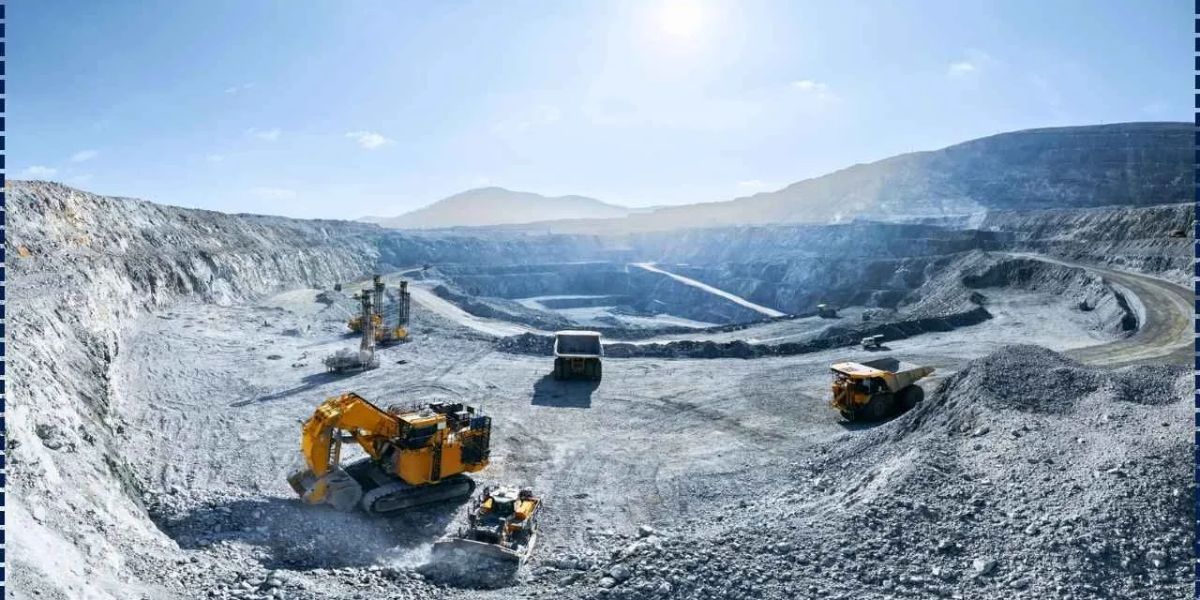In Oregon, between 20 and 40 million metric tons of lithium have been found, the most coveted metal for electric mobility and the energy transition! What?
Yes, an authentic white gold mine, valued at $1.5 trillion, and in the United States! It was in Oregon, in McDermitt Caldera, a volcanic formation that extends to Nevada, and, for now, this lithium deposit is the largest in North America and one of the largest in the world! But, beyond its economic magnitude, this discovery reconfigures the global race for the energy transition. Are you ready to learn more about this “volcanic white gold”?
A gift from nature, in Oregon!
The lithium discovered in the McDermitt Caldera has an astonishing age: it dates back 16 million years!!! This caldera was formed when the region experienced strong volcanic eruptions that left layers of mineral-rich sediments.
And it’s that, unlike other lithium deposits that are found in brines (like in Bolivia or Chile), this treasure lies in clays formed from those eruptions, which indicates much higher concentrations of lithium.
Why lithium is so valuable
Everything has lithium, today, all (or most of them) of the electronic devices we have are made of lithium, from our cell phones to the batteries of electric vehicles. It’s an element that doesn’t stop growing and being more in demand, so, with this discovery, hundreds of millions of batteries could be powered, driving the energy independence of the US and consolidating its position as a leader in the race toward electric mobility, which until now has been led by China.
A new global leader?
As we told you, the big car manufacturers, who depend on lithium for their batteries, already see this news as an opportunity to ensure supply and reduce dependence on more unstable global chains. From Tesla to the main German manufacturers, they all look to Oregon as a strategic source.Opportunity for the US in energy geopolitics
Global tensions are increasing, we can’t deny that to anyone, and trade relations are also being reconfigured, so, in this panorama (which doesn’t seem very friendly by the way), having critical resources within your own territory is an incredible advantage (and if not, let China tell you!).
So, maybe this is the time to strengthen a national energy strategy and protect the economy from possible and future supply crises.
Environmental and cultural threats
Even though there are many things in favour, the extraction of this lithium is facing very critical voices. For example, local indigenous tribes have begun to warn about threats to sacred lands and ceremonial rites because, for them, this mining exercise means an attack on their identity and their cultural rights.
Of course, on the other side of the coin are also the environmentalists who have warned that the mining will have a serious impact on the surrounding ecosystems, contaminating the waters, destroying the habitats of many species and altering the natural landscape (since we would be talking about open-pit mining).
Is the “white gold” then as ecological as they say?
Future of energy: solution or new problem?
Of course this discovery marks a turning point because the global race for lithium is quite close, but it’s also important to highlight that it has a lot of opposition against it. The moral dilemma is served… do we stop using fossil fuels because they pollute but start using a new element whose extraction pollutes twice as much?
Alternatives to lithium?
Some scientists are already exploring technologies that could reduce dependence on lithium, like batteries based on water or other abundant materials. But, for now, lithium remains the undisputed king in electric mobility.
Of course the transition to clean energy has to be a reality, but it must be sustainable throughout the entire process, it’s useless to create incredible batteries if we keep destroying the environment, don’t you think?




